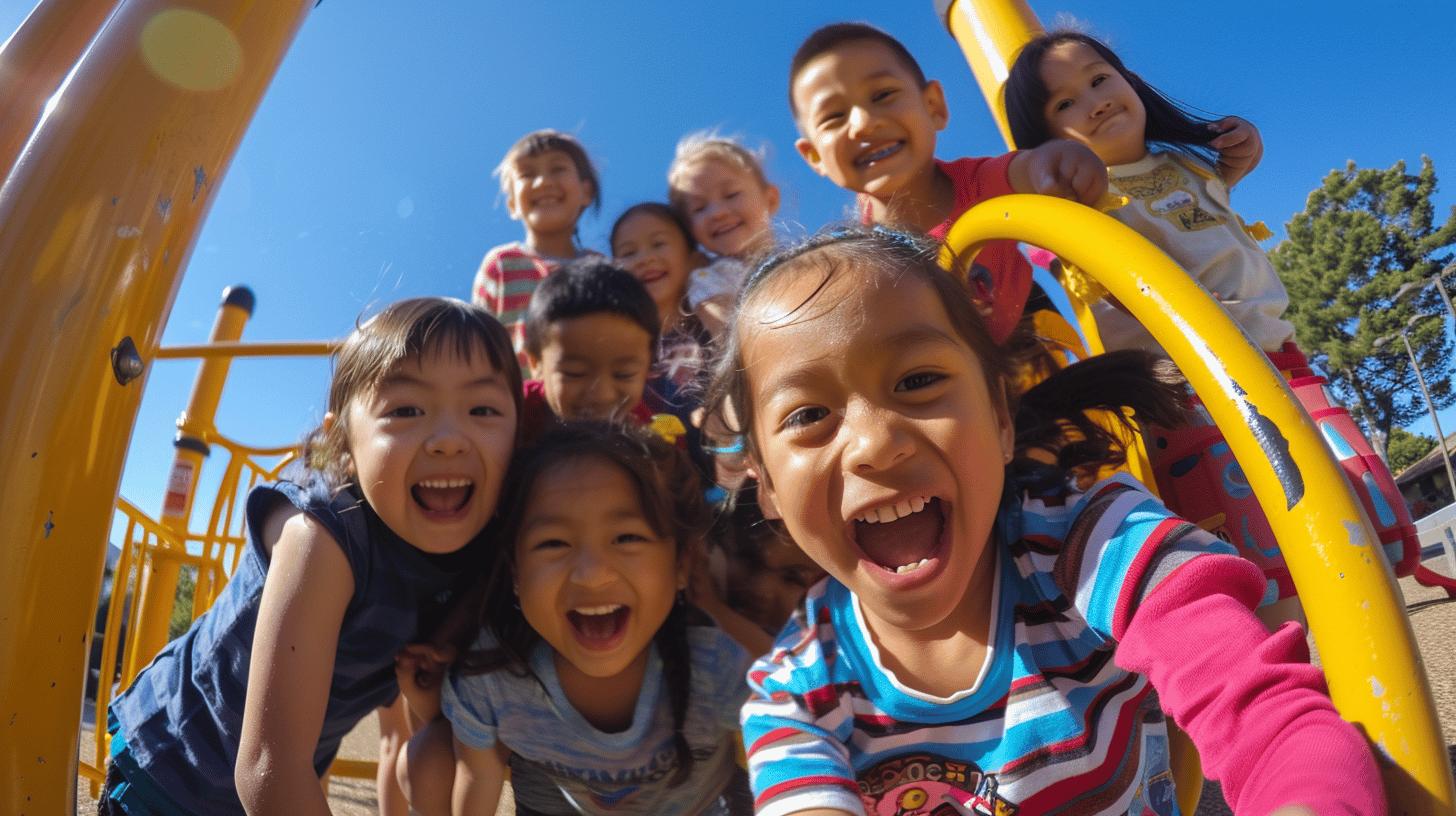Is it our genes or our surroundings that shape who we are? According to developmental psychologists, "nurture" refers to the environment's influence on our growth and development. From early childhood experiences to family dynamics and cultural norms, these environmental factors play a critical role in shaping our behaviors, personalities, and cognitive abilities. This article will delve into how environmental variables affect our psychological development and why understanding this influence is crucial for both parents and educators. Join us as we explore the intricate dance between nature and nurture and its profound impact on human development.
Nurture Defined in Developmental Psychology
In developmental psychology, "nurture" encompasses the environmental variables that influence an individual's growth. These variables include early childhood experiences, family and social relationships, culture, and community. Developmental psychologists understand that these factors shape psychological development significantly, impacting everything from cognitive abilities to emotional health.
Researchers recognize that development results from the interaction between genetic and environmental factors. Social learning theory highlights this interaction by suggesting that children learn behaviors through observation. Parenting styles and learned experiences thus play a crucial role in shaping behavior and personality.
Key Environmental Factors Influencing Development:
- Early childhood experiences
- Family and social relationships
- Cultural context
- Community environment
- Educational opportunities
Epigenetics further underscores the importance of nurture by demonstrating how environmental factors can influence genetic markers. Studies show that these markers not only affect a child’s physical development but also their biological age. Thus, the environment a child is exposed to can have profound and lasting impacts on their overall development.
Environmental Factors Shaping Human Development

Environmental factors play a pivotal role in shaping human development. Developmental psychologists emphasize that the environment a person is exposed to can significantly impact their psychological traits, cognitive abilities, and even physical health. These influences begin as early as the prenatal stage and continue through adolescence and adulthood. Understanding these environmental factors helps in creating supportive settings that foster healthy development.
Twin studies have shown that while genetics determine many aspects such as sleeping patterns, temperament, and sociability, environmental influences cannot be overlooked. For example, exposure to sunlight and consistent bedtime routines can enhance sleep patterns, while activities like swaddling and rocking can soothe a crying baby. These environmental factors are crucial in shaping behaviors and emotional responses early in life.
Behaviorism, a theory focusing on learned behaviors, underscores the impact of environmental factors. According to this theory, behaviors are acquired through interactions with the environment. For instance, children learn social behaviors by observing and imitating others, highlighting the importance of family and social relationships in development. These learned behaviors can significantly influence a child's personality and social skills.
Epigenetics adds another layer of complexity to our understanding of human development. It reveals how environmental factors can influence genetic markers, affecting both physical development and psychological traits. These markers can even indicate a child's biological age, underscoring the profound and lasting impact of the environment on overall development. Hence, nurturing environments that provide emotional and social support are essential for optimal growth.
| Environmental Factor | Example |
|---|---|
| Early Childhood Experiences | Parental bonding, early education |
| Family and Social Relationships | Quality of attachment, peer interactions |
| Cultural Context | Traditions, societal norms |
| Community Environment | Neighborhood safety, resources available |
| Educational Opportunities | Access to quality schooling, extracurricular activities |
In conclusion, environmental factors are integral to human development. They shape psychological traits and cognitive abilities and have significant impacts on behavior and personality. By understanding these influences, we can create environments that nurture and support healthy development throughout the lifespan.
The Role of Nurture in Brain Development
Early brain development is significantly influenced by nurturing environments. Developmental psychologists emphasize that the first few years of life are critical for brain growth, as the brain undergoes rapid development during this period. Environmental factors such as prenatal conditions, mental stimulation, and social interactions shape neural connections and cognitive abilities. Studies have shown that infants' gaze behavior can predict social behaviors, highlighting the importance of early experiences in shaping brain development.
Key Nurturing Activities That Promote Brain Development:
- Interactive Play: Engaging in activities like peek-a-boo or playing with toys helps develop cognitive and social skills.
- Reading Aloud: Reading to infants and young children promotes language development and enhances vocabulary.
- Responsive Parenting: Attentive and responsive caregiving fosters secure attachment and emotional regulation.
- Sensory Exploration: Providing a variety of sensory experiences, such as different textures and sounds, stimulates brain growth.
Nurturing activities are essential for optimal brain development. By fostering interactive play, reading aloud, responsive parenting, and sensory exploration, caregivers can significantly enhance an infant's cognitive and social abilities. These early experiences lay the foundation for future learning and development, demonstrating the profound impact of nurture on brain growth.
Influence of Upbringing on Behavior and Personality

Social learning theory suggests that children learn behaviors by observing others. According to this theory, parenting styles and learned experiences play a significant role in shaping behavior. For instance, if a child sees their parent handling stress calmly, they are likely to imitate this behavior. Conversely, if they observe aggressive reactions, they might develop similar responses. This observational learning underscores the impact of the family environment on a child's behavior and personality development.
Attachment theory highlights the importance of early relationships in shaping emotional and social development. Secure attachment, formed when caregivers consistently meet a child's needs, fosters emotional stability and social competence. In contrast, insecure attachment can lead to difficulties in forming healthy relationships later in life. This theory emphasizes that the quality of early caregiving experiences profoundly affects a child's future emotional and social well-being.
Parenting styles also significantly impact children's behavior and personality development. Research identifies four primary parenting styles: authoritative, authoritarian, permissive, and uninvolved. Each style has distinct effects on a child's behavior and personality. For example, authoritative parenting, characterized by warmth and structure, tends to produce well-adjusted, confident children. On the other hand, authoritarian parenting, which is strict and less responsive, can lead to children who are obedient but may struggle with self-esteem and social skills.
Key Parenting Styles and Their Impacts on Behavior and Personality:
- Authoritative: Promotes independence, self-regulation, and social competence.
- Authoritarian: Leads to obedience but may result in lower self-esteem and social skills.
- Permissive: Encourages creativity but can result in lack of discipline and self-control.
- Uninvolved: Associated with poor academic performance and low emotional well-being.
Understanding how upbringing influences behavior and personality helps caregivers create nurturing environments that support healthy development. By adopting positive parenting styles and fostering secure attachments, parents can significantly enhance their children's emotional and social outcomes.
Nurture’s Role in Academic and Cognitive Development
Early childhood education is crucial for cognitive development. Developmental psychologists emphasize that the quality of experiences during these formative years can significantly influence a child's academic outcomes. For instance, engaging activities like storytelling, puzzles, and interactive play can enhance cognitive skills such as problem-solving, memory, and language abilities. These early educational opportunities lay a strong foundation for future learning and academic success.
The school environment plays a pivotal role in shaping academic development. A supportive and stimulating school setting can foster a love for learning and encourage intellectual curiosity. Teachers who provide positive reinforcement and create an engaging classroom atmosphere can help students develop essential cognitive skills. Moreover, peer interactions within the school environment contribute to social learning, further enhancing cognitive abilities.
Environmental learning opportunities extend beyond the classroom. Extracurricular activities, such as sports, music, and art, provide additional avenues for cognitive development. These activities not only promote creativity and critical thinking but also teach valuable life skills like teamwork, discipline, and time management. Access to diverse learning experiences enriches a child's cognitive development, contributing to well-rounded academic growth.
| Cognitive Skill | Environmental Influence |
|---|---|
| Problem-Solving | Interactive play, puzzles |
| Memory | Storytelling, repetition |
| Language Abilities | Reading aloud, conversations |
| Creativity | Art, music, imaginative play |
Understanding the role of nurture in academic and cognitive development highlights the importance of creating enriching environments for children. By providing quality early childhood education, supportive school settings, and diverse extracurricular opportunities, caregivers and educators can significantly enhance a child's cognitive skills and academic outcomes.
The Nature vs. Nurture Debate in Developmental Psychology

The nature vs. nurture debate examines the contributions of genetics (nature) and environmental factors (nurture) to human development. This debate has been a central topic in developmental psychology for decades. Nature refers to the genetic inheritance and biological factors that shape who we are, such as our physical appearance and innate abilities. Nurture, on the other hand, encompasses the environmental variables that influence our development, including childhood experiences, education, and social relationships. Developmental psychologists now recognize that both nature and nurture are essential in shaping human growth, and their interaction is complex and dynamic.
In child development, some theories emphasize the role of nature. For example, Noam Chomsky's language acquisition device (LAD) theory suggests that children are born with an innate ability to learn language. According to Chomsky, this inborn mechanism allows children to rapidly acquire language skills, indicating a strong genetic component. This theory highlights how certain developmental stages are influenced by our genetic makeup.
Conversely, other theories focus on the impact of environmental influences. Social learning theory, for instance, posits that children learn behaviors by observing and imitating others. This theory underscores the importance of nurture, as it suggests that a child's social environment and experiences play a critical role in their behavioral development. Parenting styles, peer interactions, and cultural context all contribute to shaping a child's personality and social skills.
Key Contemporary Views on the Interaction Between Nature and Nurture:
- Both genetics and environment are crucial in development.
- Genetic predispositions can be influenced by environmental factors.
- Early experiences can alter genetic expressions through epigenetics.
- The interaction between nature and nurture continues throughout life.
- Neither nature nor nurture alone can fully explain human development.
These contemporary views suggest that the nature vs. nurture debate is not about choosing one over the other but understanding how they interact to shape human development.
Final Words
In the action of understanding developmental psychology, nurture refers to the environmental factors influencing growth. From early childhood experiences to social relationships, these elements combine with genetic components to shape individuals.
Theories like social learning highlight how children learn behaviors through observation, emphasizing the role of parents and environment. Knowledge of epigenetics further shows how genetic markers interact with environmental factors in development.
Balancing nature and nurture is essential. According to developmental psychologists, nurture refers to external factors crucial for holistic development. Prioritizing supportive environments ensures healthier, well-rounded children.
FAQ
According to developmental psychologists nurture refers to quizlet
Nurture in developmental psychology refers to environmental variables influencing development, including early experiences, family, social relationships, and culture.
According to developmental psychologists nature refers to
Nature refers to the genetic or hereditary influences on development, such as innate traits and genetic predispositions.
Puberty marks the onset of:
Puberty marks the onset of sexual maturity and the capability for reproduction, usually accompanied by physical and hormonal changes.
What do psychologists mean when they talk about resilience?
Resilience is the ability to adapt and recover from stress, adversity, trauma, or challenges.
Identify a true statement about an individual's phenotype.
An individual's phenotype is the observable physical and behavioral traits resulting from the interaction of their genotype with the environment.
Which of the following statements is true of prenatal development in humans?
Prenatal development in humans is influenced by genetic factors and environmental conditions, including maternal health, nutrition, and exposure to toxins.
When developmental psychologists speak about nurture, what are they referring to?
When developmental psychologists speak about nurture, they refer to environmental influences impacting an individual’s development, such as upbringing, education, and cultural context.
What is development according to psychologists?
Development is a process of change and growth involving physical, cognitive, and social-emotional dimensions throughout the lifespan.
What does nurture refer to in the nature vs. nurture debate?
In the nature vs. nurture debate, nurture refers to the environmental factors and experiences that influence an individual's development, such as family, education, and social interactions.


